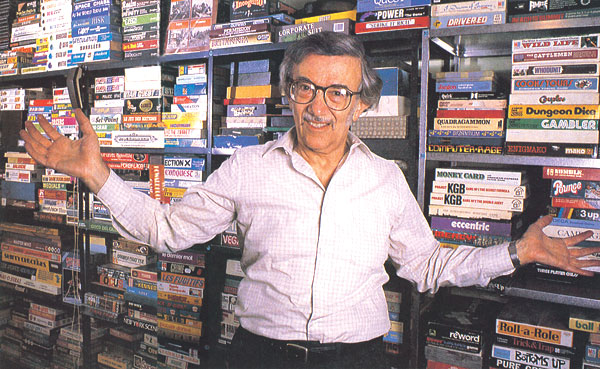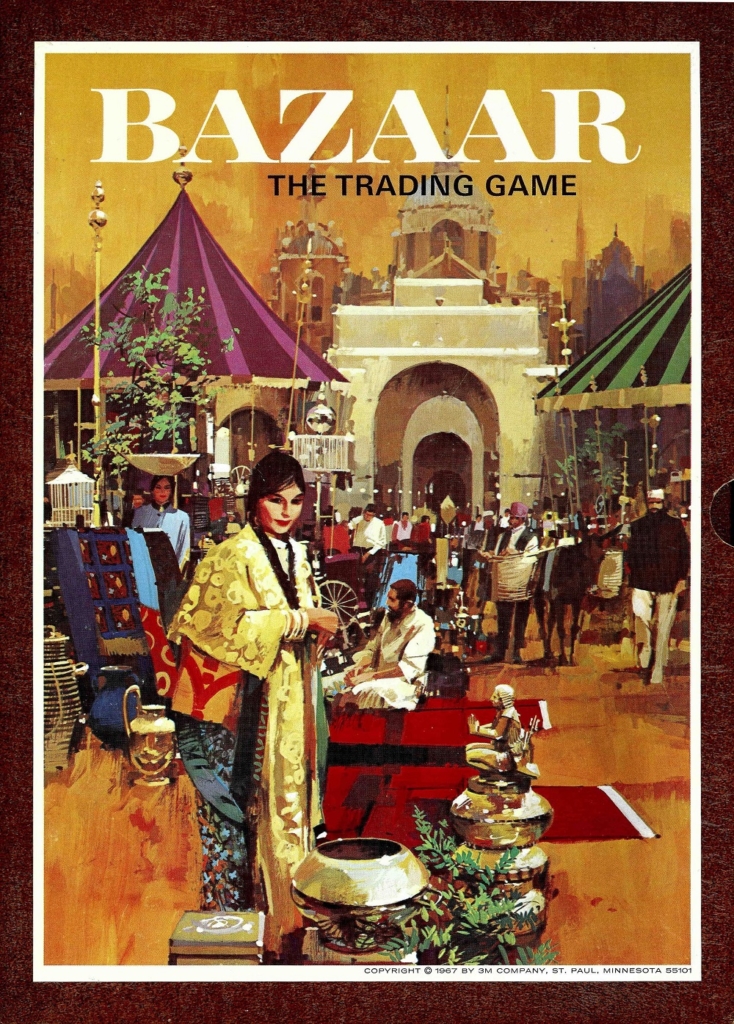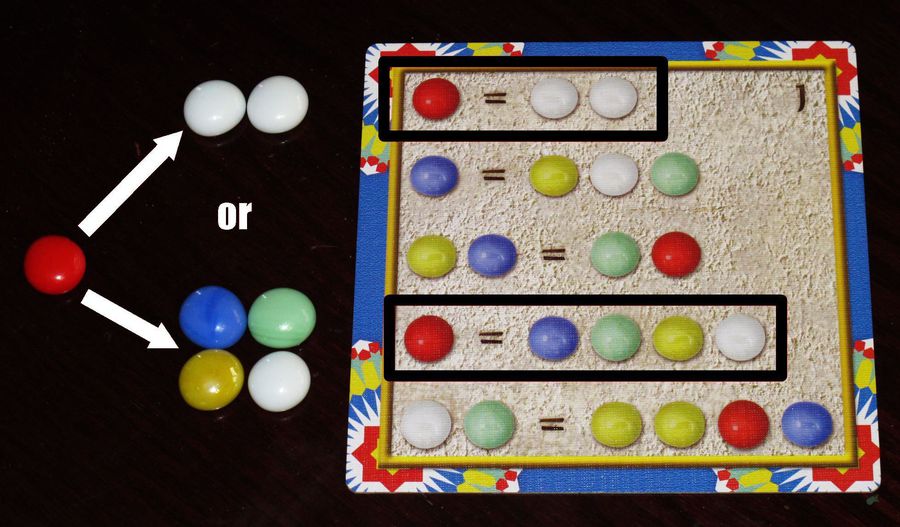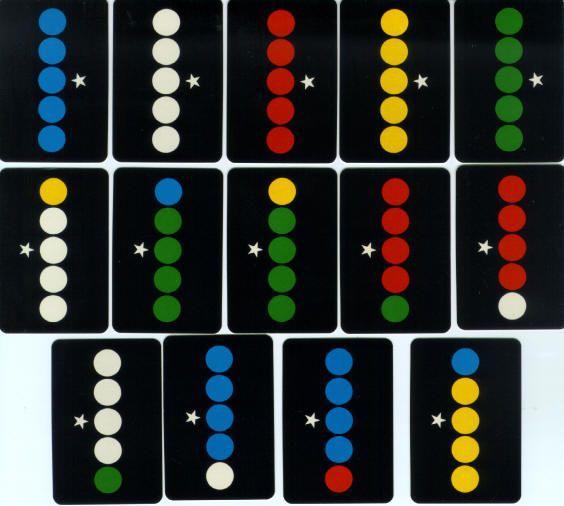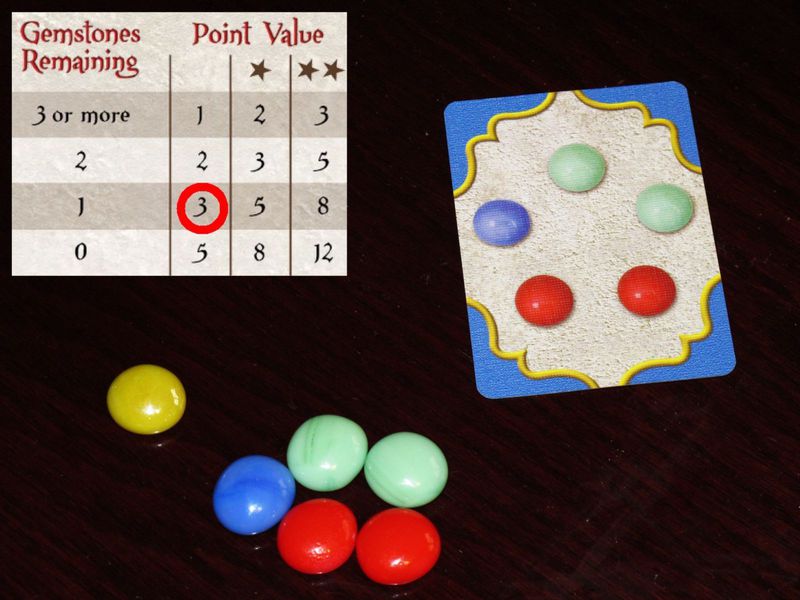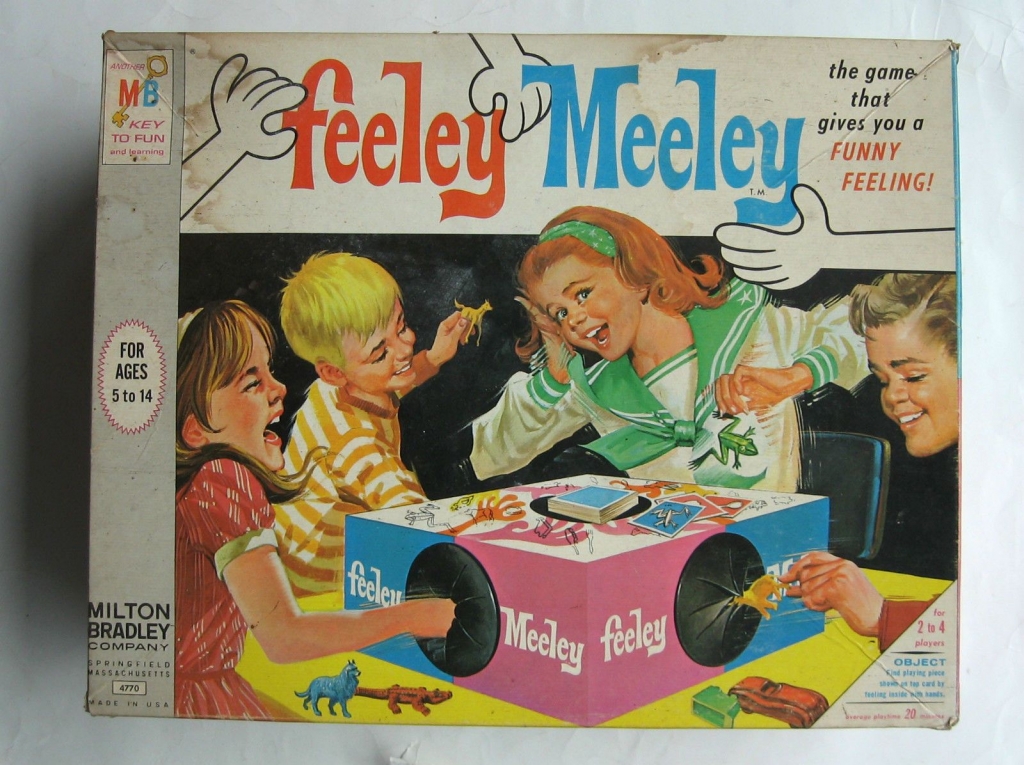Board Game Retro: Bazaar’s Pure Trading Gameplay Isn’t Very Bizarre
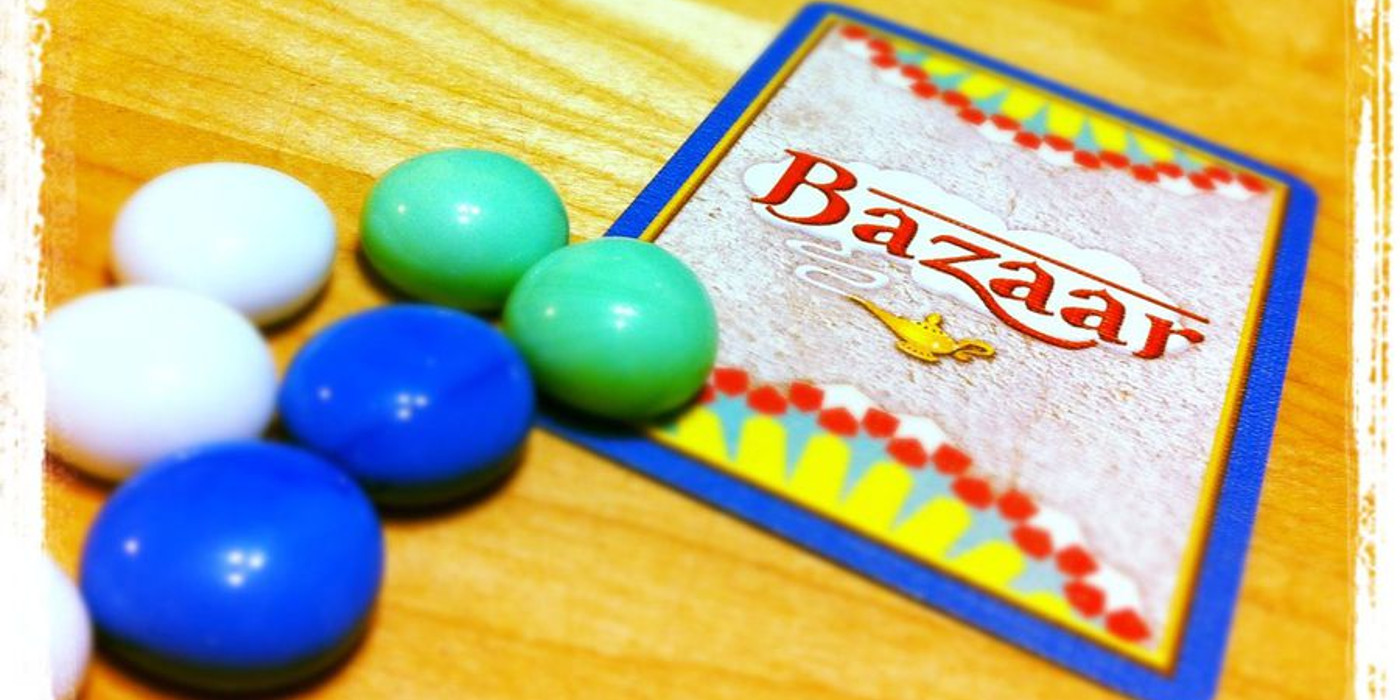
If you thought Settlers of Catan had a lot of trading, wait until you see this!
Originally released in 1967 by 3M and designed by one of my personal favorites, Sid Sackson, who designed Acquire and was a major part of the whirlwind history of Mouse Trap.
Bazaar has undergone plenty of releases, but only with minor tweaks to gameplay, namely the end game condition. But overall, has not changed much and is about as pure of an economics game as you can get.
Bazaar is a competitive economics game with set collection mechanics. The goal of each player is to have the most points when the game ends. Points are gained by making purchases most efficiently.
On each player’s turn, they will either:
- Roll a die to gain a stone
- Make a trade
If they roll the die, they will gain whichever colored stone is shown on the die. Turn over. Easy.
If they wish to make a trade, they must first consult the Rate Cards.
The Rate Cards show the exchange rates of all of the stones. Trades can be made in either direction. So for example, a player could trade a red stone for two white, or two white for one red.
But to what end?!
As part of a player’s turn they may purchase wares by spending their stones. However, the number of points they score for making this purchase is determined by how many stones they have remaining after making their purchase. Points are tracked during gameplay.
So, just trading for as many stones as possible will let you make more purchases overall, but they will be worth less each time, due to your inefficient trading. Some cards are marked with a star and are worth more points. Additionally, at the bottom of each pile of cards is a blank star card.
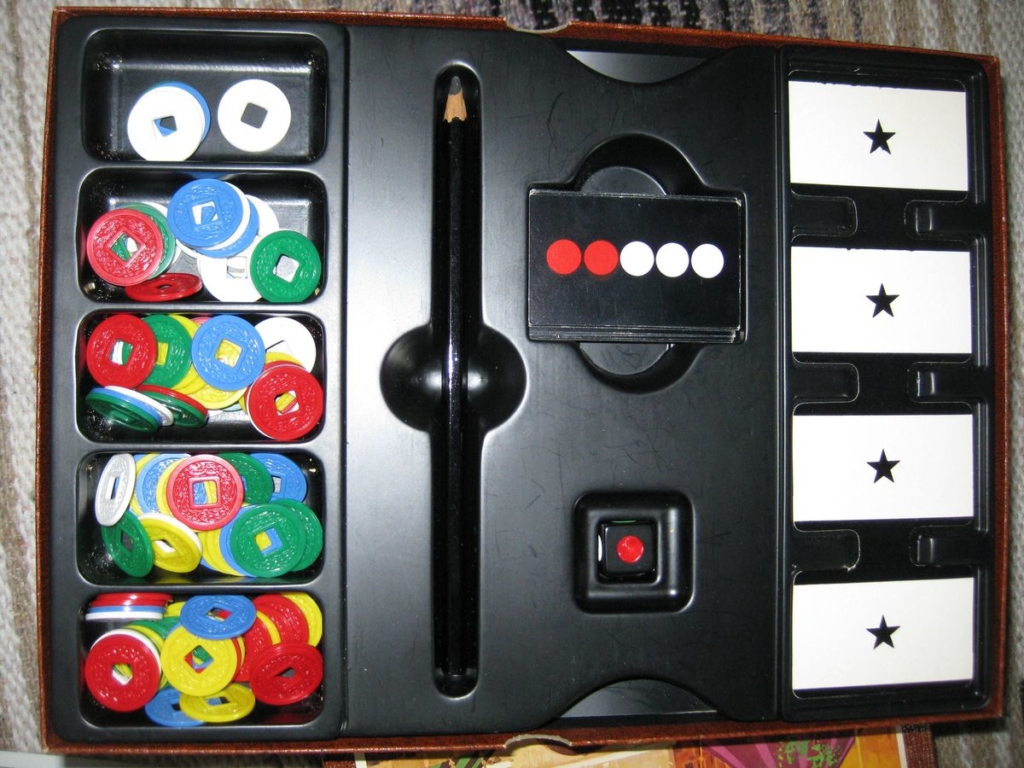 The ware piles went in the card slots on the right.
The ware piles went in the card slots on the right.
Once this card is revealed, all cards are considered to have 1 extra star than they have showing. No cards have 2 stars on their own. Star cards must be enhanced in this way in order to get 2 star points during scoring.
Once two of the ware piles are empty, the game ends and players tally their scores. Whichever player scored the most points, wins! In case of a tie, whichever player has the fewest number of wares wins.
Final Thoughts
I really like the puzzling aspect of Bazaar. Having to piece together what trades to make and how to best execute your purchases is much more mind-bending than it appears at first.
Even to that point, the game included a solo puzzle mode, even in the original 1967 version! Quite a stand out accomplishment for something that released the same year as this side show of a game.
Thanks for reading!

